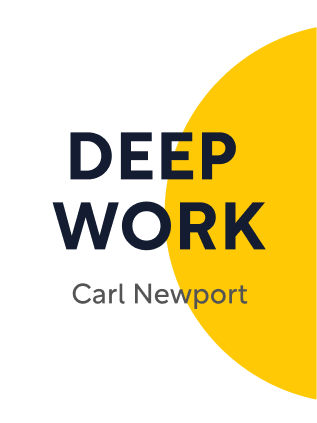

This article is an excerpt from the Shortform book guide to "Deep Work" by Cal Newport. Shortform has the world's best summaries and analyses of books you should be reading.
Like this article? Sign up for a free trial here .
If deep work is so valuable, why don’t we do it more often? How did we become addicted to distraction in the workplace?
There are three major distractions that workers face daily: open offices, instant communication, and social media. These distractions are ubiquitous in the corporate setting and are often even supported by companies.
Keep reading to learn more about how the distraction addiction is preventing deep work.
Why Deep Work Is Difficult
“Deep work” is focused, uninterrupted, undistracted work on a task that pushes your cognitive abilities to their limit.
If deep work is so valuable, why don’t we do it more often? Because we face constant distraction every few minutes, and we’re addicted to distraction.
The three major detractors from deep work that workers face daily are:
- Open offices
- At one point, open office floorplans had good intentions. They were meant to increase collaboration and cross-pollination between teams.
- But nowadays, they cause a continuously distracting environment, where every conversation is heard, and one person can disrupt dozens of people.
- Instant communication
- Emails were distracting enough. Instant communication takes it to another level. With tools like Slack and texting, people can interrupt your work on-demand and expect help within seconds. We stop being deep thinkers and become human network routers.
- Superficially, instant communication is preferred as the easy path. If you don’t know something, you can just ask someone. You don’t need to do the hard work of planning ahead, studying what you do or don’t know, and scheduling meetings thoughtfully.
- Social media
- On Facebook, Twitter, Snapchat, and other social apps, the conversations continue endlessly, 24/7. You can get stuck in an eternal state of dialogue.
- The effects are insidious. The new content you see always seems novel and productive, but it doesn’t move you closer to the major things you really care about.
We Are Addicted to Distraction
These distractions are ubiquitous in the corporate setting. This is confusing – companies usually aren’t dumb. If they know something is drastically lowering productivity and profits, they’ll usually move to stop it. But the reaction seems to be the opposite – distractions like open offices and real-time messaging are supported by companies.
How did these destructive distractions get adopted systematically as the right thing to do? Cal Newport explains:
- The new information economy brought a new management challenge – how to measure output from individual workers.
- In a factory, output was clear and quantitative – you produce so many widgets in an hour, and you can be compared on equal footing with other workers.
- In information jobs, complex problems often require a larger team of people with different roles. It no longer becomes clear who contributes what. People’s jobs become more diffuse and vague – a “marketing manager” could be doing lots of different things with different projects.
- So managers had to seek superficial proxies of progress – email response times, meetings conducted. As long as there was a lot of motion, surely people were being productive!
- In contrast, deep work looks like slacking. Stepping away from email to think deep thoughts seems indulgent, when everyone else is buzzing around the office.
- There is also a technological imperative that “any technology is likely good technology.” There’s pressure to look like you’re on the vanguard of technology (to press, potential employees, customers). This makes you adopt new tools like Slack, social media and open office plans without deeply considering their impact.
If there were solid proof that deep work was value-driving and shallow work was not, then companies would switch right away. But there isn’t. Information work remains hard to measure. So people gravitate toward behaviors that are easiest in the moment, instead of doing the hard thing.
This is why deep work is so rare, and shallow work so common.

———End of Preview———
Like what you just read? Read the rest of the world's best book summary and analysis of Cal Newport's "Deep Work" at Shortform .
Here's what you'll find in our full Deep Work summary :
- How deep work is critical for performance and productivity
- Why focus is like a mental muscle
- Why willpower isn't as good as a ritual






